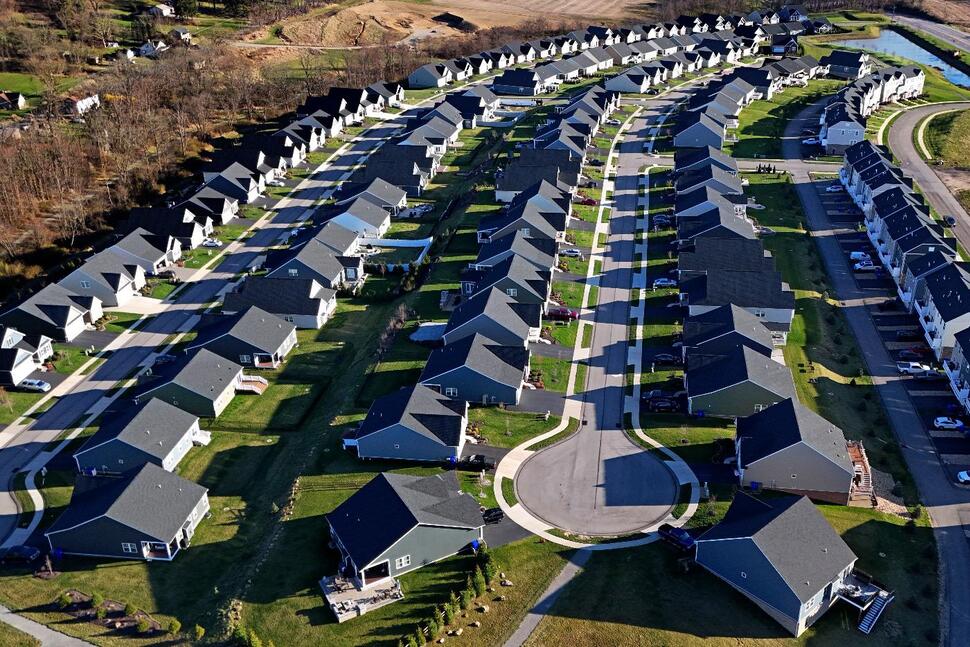Trump Win Could Lead to Mortgage Market Changes: Higher Rates Feared as Privatization Looms

If he wins next month's election, Donald Trump's administration could reopen a top priority of the GOP: privatizing Fannie Mae and Freddie Mac, the government-backed mortgage giants that hold about half of the U.S. home loan market. Democrats and economists have mixed feelings about the move because they fear, at present high rates, higher mortgage costs might make the insecurity of homeownership in the U.S. even more unsustainable.
Fannie Mae and Freddie Mac are two organizations, under federal oversight since the 2008 financial crisis, when a government conservatorship rescued them from outright collapse. For Republicans, though, this extends the oversight over the mortgage industry - and increases taxpayers' risk of another costly bailout. Trump tried to eventually release the companies from federal control during his presidency, but with Biden's 2020 win, the plan stalled. Now, a new GOP playbook for a future Trump administration—Project 2025—includes the goal of ending the conservatorship, though Trump has distanced himself from the document.
Democrats say that by privatizing Fannie and Freddie, mortgage rates might skyrocket because the two firms would have to jack up fees to offset the risk of trying to operate without the full backing of the US government. These companies are also vital to the U.S. housing market in the sense that they currently guarantee around $12 trillion in mortgage loans. Mark Zandi, of Moody's Analytics, and Jim Parrott, of the Urban Institute, opine that privatization will put an additional average cost of $1,200 on a typical American's mortgage if Fannie and Freddie increase the interest rates to cover the new risks.
Parrott believes a privatization of the GSEs would send 30-year mortgage rates up by 0.43% to 0.97%, costing, for example, $730 to $1,670 extra per year in more payments on a typical $244,500 mortgage. The research Parrott conducted in 2015 remains relevant for lawmakers: he maintains that if privatized without government support, the mortgage giants would have another effect on the housing market - making mortgages available primarily to borrowers with excellent credit.
Mark Calabria, a former head of the Federal Housing Finance Agency (FHFA) under Trump, disagrees with those concerns. He says that Fannie Mae and Freddie Mac are financially stable enough to be taken out of government control by 2027, especially if they increase capital reserves. Calabria said: "This bill is utterly essential to the integrity of the mortgage market and to taxpayer liability. Citibank and GM are examples of entities bailed out during the crisis that have since privatized and stabilized without the government breathing down anyone's neck."
However, this does not sound right for economists like Parrott, as the privatization of the two institutions without a government guarantee will disrupt Fannie and Freddie's role of making mortgages available to a broad slice of Americans. The question remains whether Fannie and Freddie would retain an implicit or explicit guarantee of federal assistance in case of a crisis. Indeed, in case they do not, say housing experts like Parrott, the mortgage market may experience marked uprooting, and average borrowers might face tightened restrictions on mortgage approvals.
Given the expected cuts in interest rates next year, Parrott did not believe that Trump advisors would pursue privatization since this would once again surge mortgage rates sharply, a reversal that would infuriate Trump's camp, which owns large shares in the two companies. Privatization would sharply inflate their value.
In fact, the argument over Fannie Mae and Freddie Mac reflects a deeper question about what is to be the role of the government in America's housing finance system. Indeed, Trump will have to weigh the cost of privatization against its possible impact on the housing market, as well as American homebuyers, amid uncertain economic conditions.


